
Psalm 90:1-7
“In the morning it flourisheth, and groweth up.” Blooming with abounding beauty till the meadows are all besprent with gems, the grass has a golden hour, even as man in his youth has a heyday of flowery glory. “In the evening it is cut down, and withereth.” The scythe ends the blossoming of the field-flowers, and the dews at night weep their fall. Here is the history of the grass — sown, grown, blown, mown, gone; and the history of man is not much more. Natural decay would put an end both to us and the grass in due time; few, however, are left to experience the full result of age, for death comes with his scythe, and removes our life in the midst of its verdure. How great a change in how short a time! The morning saw the blooming, and the evening sees the withering.

Psalm 78:42-53
“But made his own people to go forth like sheep.” The contrast is striking, and ought never to have been forgotten by the people. The wolves were slain in heaps, the sheep were carefully gathered, and triumphantly delivered. The tables were turned, and the poor serfs became the honoured people, while their oppressors were humbled before them. Israel went out in a compact body like a flock; they were defenceless in themselves as sheep, but they were safe under their Great Shepherd; they left Egypt as easily as a flock leaves one pasture for another.

Psalm 80:1-3
“Give ear, O Shepherd of Israel.” Hear thou the bleatings of thy suffering flock. The name is full of tenderness, and hence is selected by the troubled Psalmist: broken hearts delight in names of grace. Good old Jacob delighted to think of God as the Shepherd of Israel, and this verse may refer to his dying expression: “From thence is the Shepherd, the stone of Israel.” We may be quite sure that he who deigns to be a shepherd to his people will not turn a deaf ear to their complaints.

Psalm 103:6-19
“As a flower of the field, so he flourisheth.” He has a beauty and a comeliness even as the meadows have when they are yellow with the king-cups, but, alas, how shortlived! No sooner come than gone, a flash of loveliness and no more! Man is not even like a flower in the conservatory or in the sheltered garden border, he grows best according to nature, as the field-flower does, and like the unprotected beautifier of the pasture, he runs a thousand risks of coming to a speedy end. A large congregation, in many-coloured attire, always reminds us of a meadow bright with many hues; and the comparison becomes sadly true when we reflect, that as the grass and its goodliness soon pass away, even so will those we gaze upon, and all their visible beauty.

Psalm 96:11-13
“Let the field be joyful, and all that is therein.” Let the cultivated plains praise the Lord. Peace enables their owners to plough and sew and reap, without fear of the rapine of invaders, and therefore in glad notes they applaud him whose empire is peace. Both men, and creatures that graze the plain, and the crops themselves are represented as swelling the praises of Jehovah, and the figure is both bold and warranted, for the day shall come when every inhabited rood of the ground shall yield its song, and every farmstead shall contain a church.
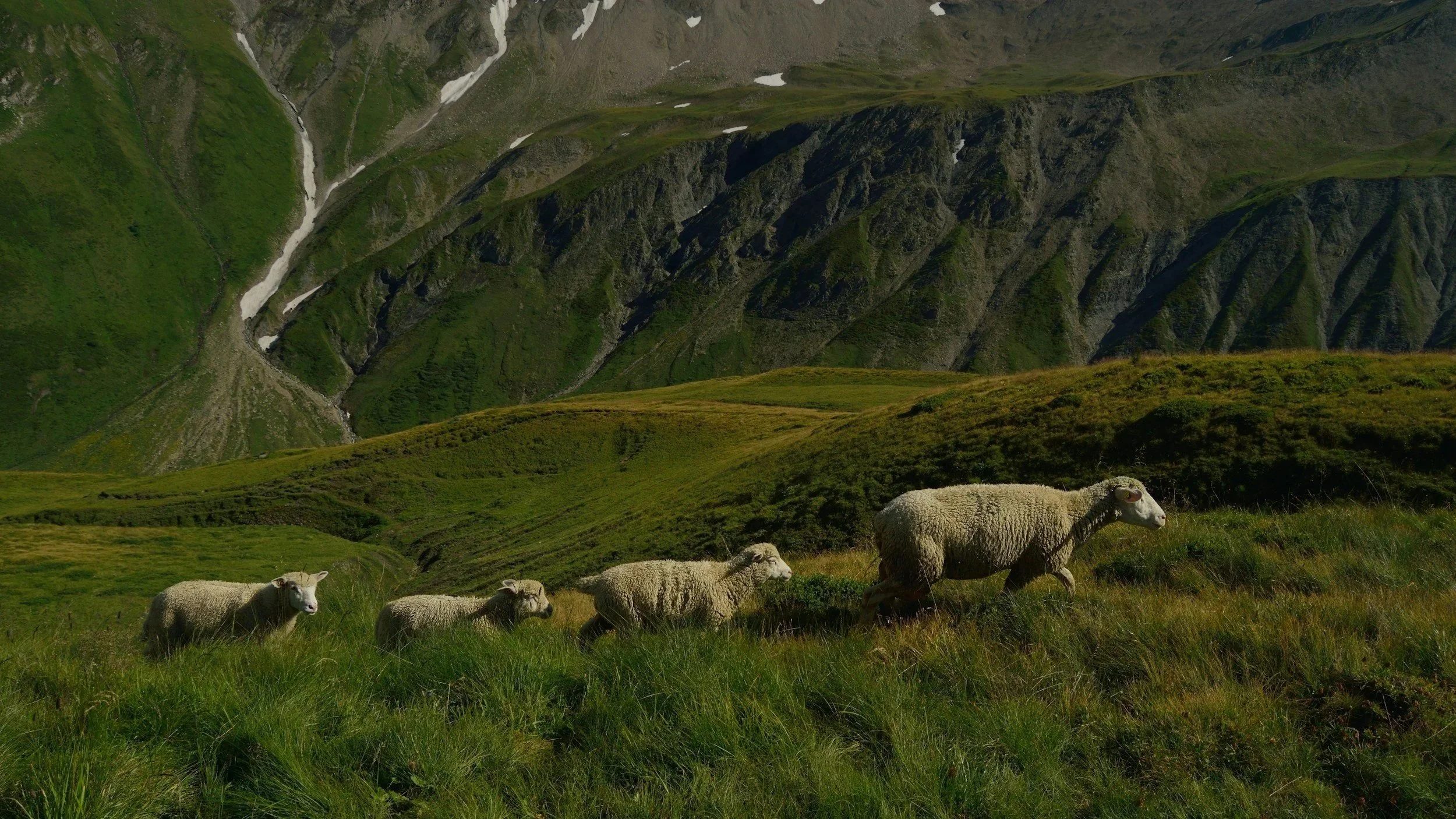
Psalm 100:1-5
“We are his people, and the sheep of his pasture.” It is our honour to have been chosen from all the world besides to be his own people, and our privilege to be therefore guided by his wisdom, tended by his care, and fed by his bounty. Sheep gather around their shepherd and look up to him; in the same manner let us gather around the great Shepherd of mankind. The avowal of our relation to God is in itself praise; when we recount his goodness we are rendering to him the best adoration; our songs require none of the inventions of fictions, the bare facts are enough; the simple narration of the mercies of the Lord is more astonishing than the productions of imagination.
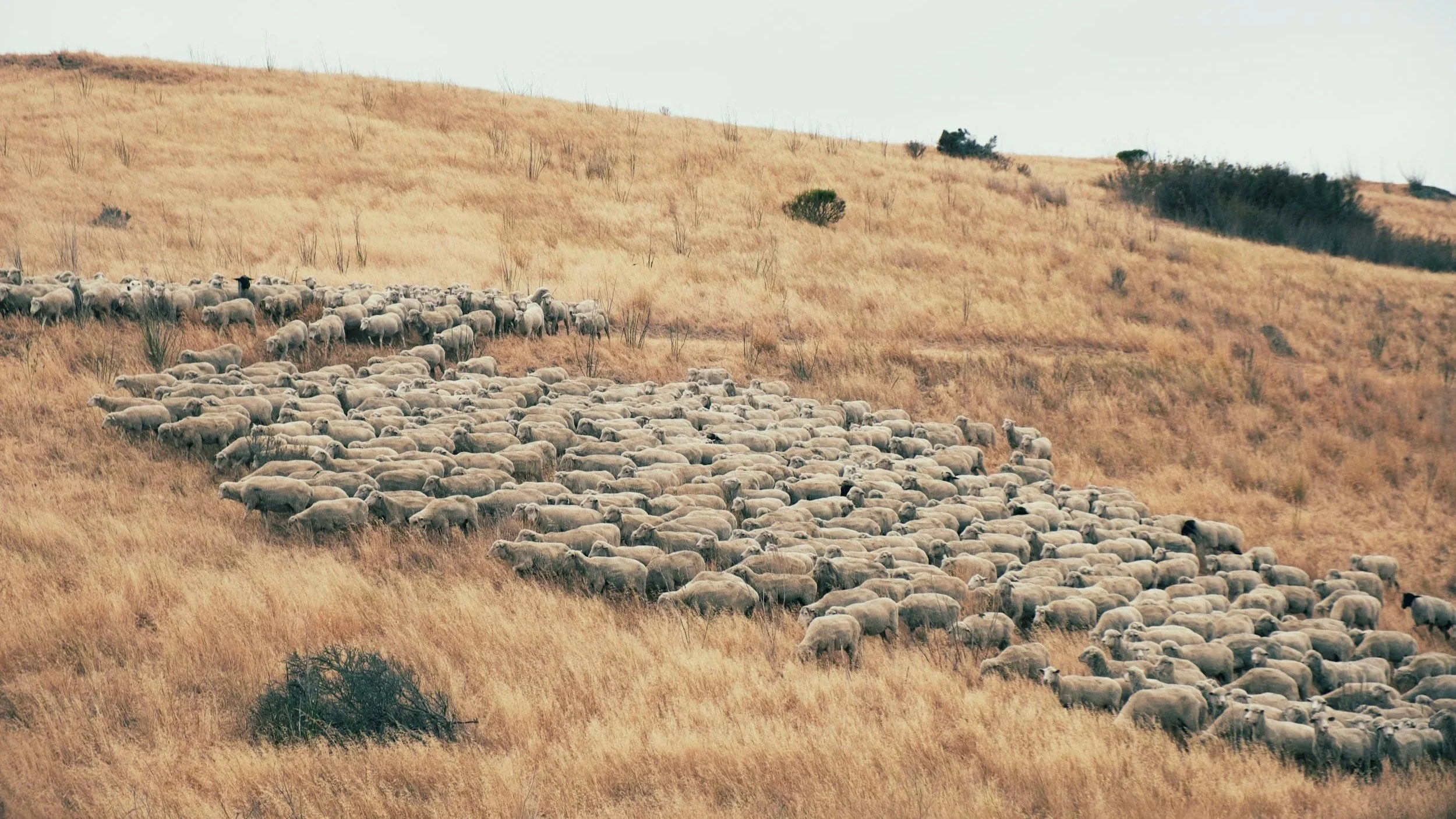
Psalm 78:67-72
“He chose David also his servant.” It was an election of a sovereignly gracious kind, and it operated practically by making the chosen man a willing servant of the Lord. He was not chosen because he was a servant, but in order that he might be so. David always esteemed it to be a high honour that he was both elect of God, and a servant of God. “And took him from the sheepfolds.” A shepherd of sheep he had been, and this was a fit school for a shepherd of men. Lowliness of occupation will debar no man from such honours as the Lord’s election confers, the Lord seeth not as man seeth. He delights to bless those who are of low estate.

Psalm 95:6-11
“And we are the people of his pasture, and the sheep of his hand.” As he belongs to us, so do we belong to him. “My Beloved is mine, and I am his.” And we are his as the people whom he daily feeds and protects. Our pastures are not ours, but his; we draw all our supplies from his stores. We are his, even as sheep belong to the shepherd, and his hand is our rule, our guidance, our government, our succour, our source of supply.

Psalm 102:1-11
“My heart is smitten,” like a plant parched by the fierce heat of a tropical sun, “and withered like grass,” which dries up when once the scythe has laid it low. The Psalmist’s heart was as a wilted, withered flower, a burned up mass of what once was verdure. His energy, beauty, freshness, and joy, were utterly gone, through the wasting influence of his anguish. “So that I forget to eat my bread,” or “because I forget to eat my bread.” Grief often destroys the appetite, and the neglect of food tends further to injure the constitution and create a yet deeper sinking of spirit. As the smitten flower no longer drinks in the dew, or draws up nutriment from the soil, so a heart parched with intense grief often refuses consolation for itself and nourishment for the bodily frame, and descends at a doubly rapid rate into weakness, despondency, and dismay.
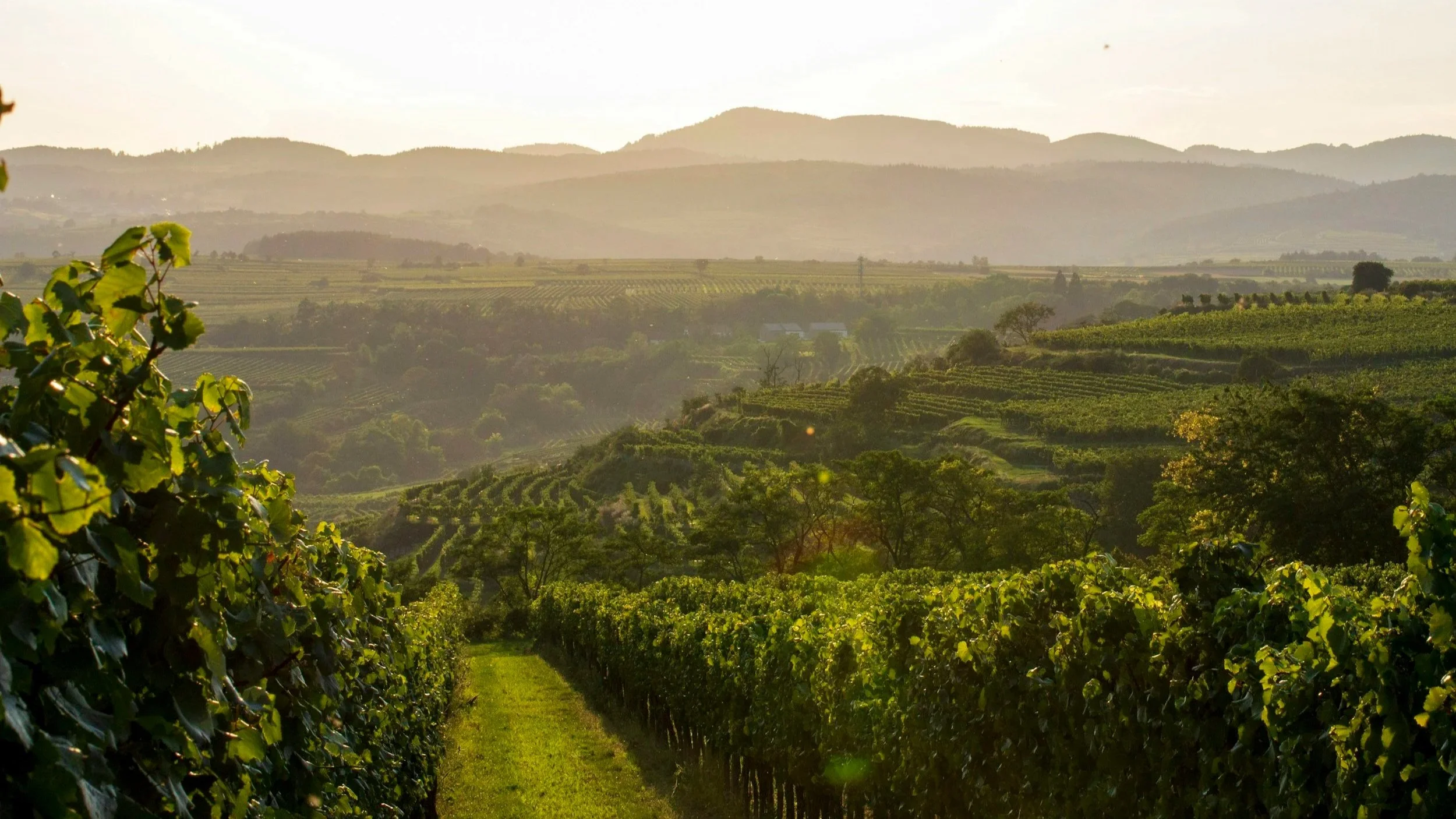
Psalm 80:8-19
“And the vineyard which thy right hand hath planted.” Shall all thy care be lost? Thou hast done so much, wilt thou lose thy labour? With thy power and wisdom thou didst great things for thy people, wilt thou now utterly give them up, and suffer thine enemies to exult in the evil which they delight in?
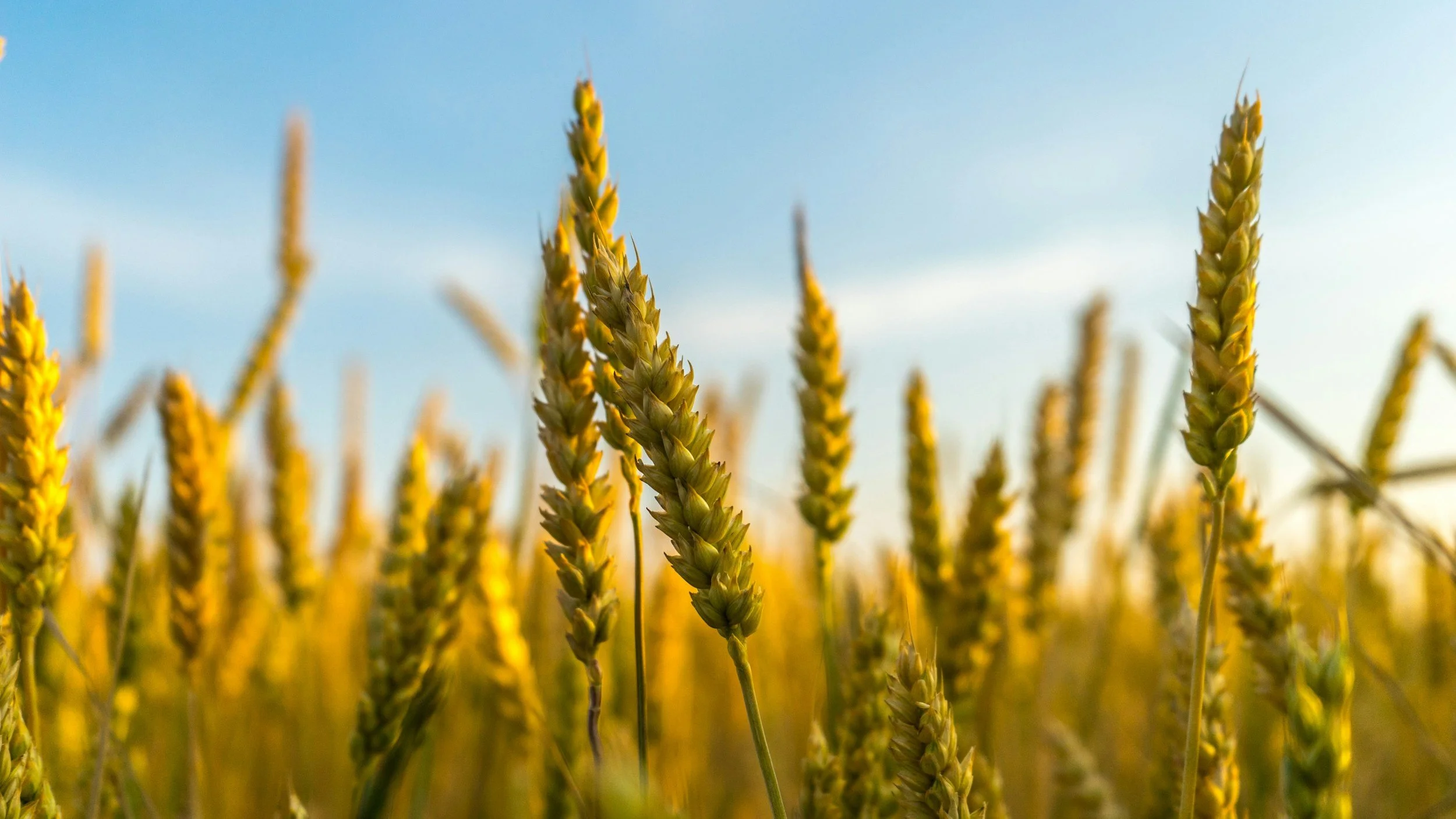
Psalm 81:8-16
“He should have fed them also with the finest of the wheat.” Famine would have been an unknown word, they would have been fed on the best of the best food, and have had abundance of it as their every day diet. “And with honey out of the rock should I have satisfied thee.” Luxuries as well as necessaries would be forthcoming, the very rocks of the land would yield abundant and sweet supplies; the bees would store the clefts of the rocks with luscious honey, and so turn the most sterile part of the land to good account. The Lord can do great things for an obedient people. When his people walk in the light of his countenance, and maintain unsullied holiness, the joy and consolation which he yields them are beyond conception.
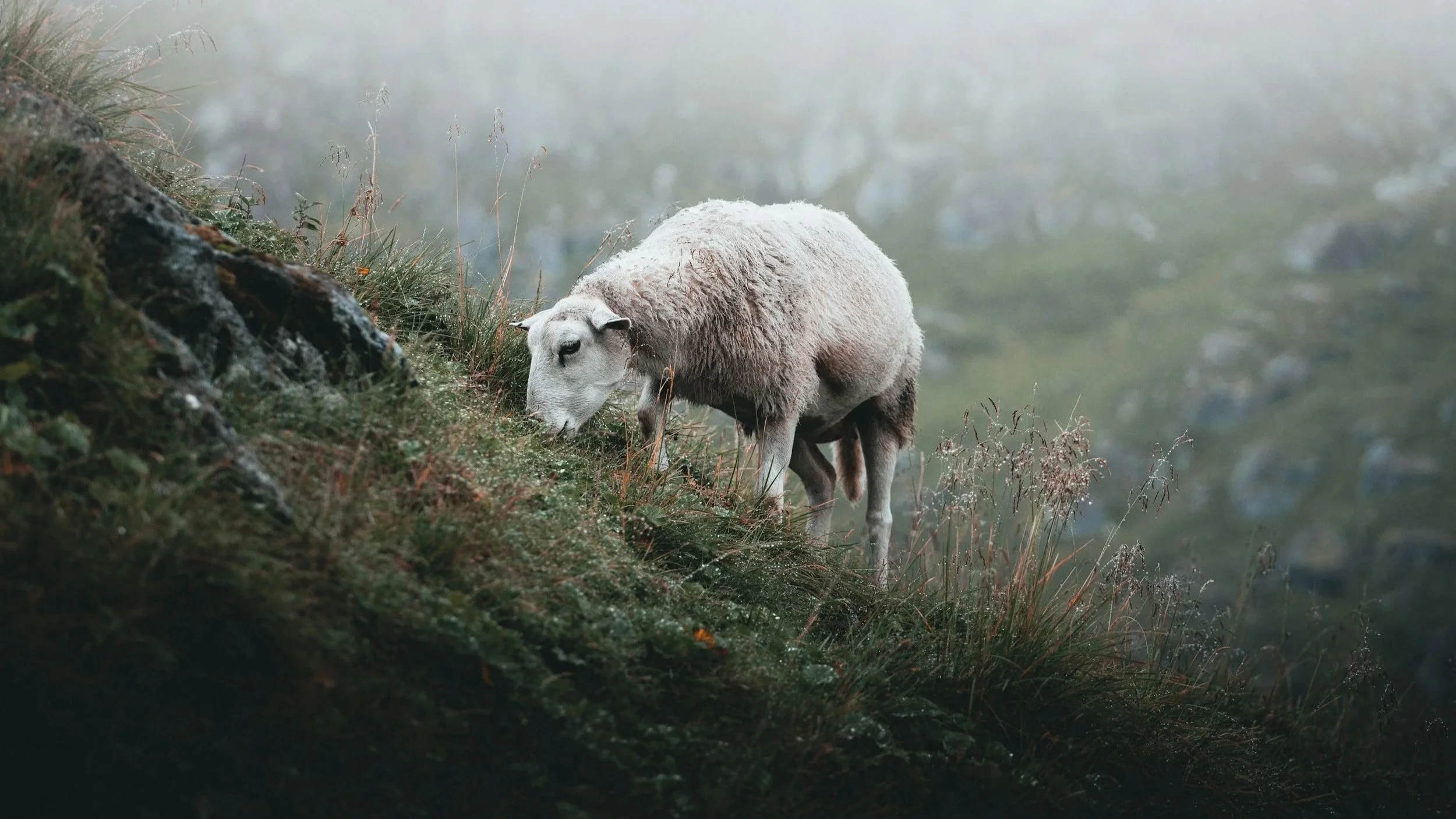
Psalm 79:13
“So we thy people and sheep of thy pasture will give thee thanks for ever; we will shew forth thy praise to all generations.” The gratitude of the church is lasting as well as deep. On her tablets are memorials of great deliverances, and, as long as she shall exist, her sons will rehearse them with delight. We have a history which will survive all other records, and it is bright in every line with the glory of the Lord. From the direst calamities God’s glory springs, and the dark days of his people become the prelude to unusual displays of the Lord’s love and power.

Psalm 23:1
”The Lord is my shepherd.” What condescension is this, that the Infinite Lord assumes towards his people the office and character of a Shepherd! It should be the subject of grateful admiration that the great God allows himself to be compared to anything which will set forth his great love and care for his own people. David had himself been a keeper of sheep, and understood both the needs of the sheep and the many cares of a shepherd. He compares himself to a creature weak, defenceless, and foolish, and he takes God to be his Provider, Preserver, Director, and, indeed, his everything.

Psalm 92:12-15
The song now contrasts the condition of the righteous with that of the graceless. The wicked “spring as the grass,” but “The righteous shall flourish like the palm tree,” whose growth may not be so rapid, but whose endurance for centuries is in fine contrast with the transitory verdure of the meadow. When we see a noble palm standing erect, sending all its strength upward in one bold column, and growing amid the dearth and drought of the desert, we have a fine picture of the godly man, who in his uprightness aims alone at the glory of God; and, independent of outward circumstances, is made by divine grace to live and thrive where all things else perish. The text tells us not only what the righteous is, but what he shall be; come what may, the good man shall flourish, and flourish after the noblest manner.

Psalm 50:7-15
And the cattle upon a thousand hills.” Not alone the wild beasts, but also the tamer creatures are all his own. Even if God cared for these things, he could suppy himself. Their cattle were not, after all, their own, but were still the great Creator’s property, why then should he be beholden to them. From Dan to Beersheba, from Nebaioth to Lebanon, there fed not a beast which was not marked with the name of the great Shepherd; why, then, should he crave oblations of Israel? What a slight is here put even upon sacrifices of divine appointment when wrongly viewed as in themselves pleasing to God! And all this to be so expressly stated under the law! How much more is this clear under the gospel, when it is so much more plainly revealed, that “God is a Spirit, and they that worship him must worship him in spirit and in truth?” Ye Ritualists, ye Sacramentarians, ye modern Pharisees, what say ye to this?

Psalm 1:3-4
”And he shall be like a tree planted;” not a wild tree, but “a tree planted,” chosen, considered as property, cultivated and secured from the last terrible uprooting, for “every plant, which my heavenly Father hath not planted, shall be rooted up:” (Matt. 15:13) ”By the rivers of water;” so that even if one river should fail, he hath another. The rivers of pardon and the rivers of grace, the rivers of the promise and the rivers of the communion with Christ, are never-failing sources of supply. He is “like a tree planted by the rivers of water, that bringeth forth his fruit in his season;” not unseasonable graces, like untimely figs, which are never full-flavoured. But the man who delights in God’s Word, being taught by it, bringeth forth patience in the time of suffering, faith in the day of trial, and holy joy in the hour of prosperity.

Psalm 37:19-20
“They shall not be ashamed in the evil time.” Calamities will come, but deliverances will come also. As the righteous never reckoned upon immunity from trouble, they will not be disappointed when they are called to take their share of it, but the rather they will cast themselves anew upon their God, and prove again his faithfulness and love. God is not a friend in the sunshine only, he is a friend indeed and a friend in need. “And in the days of famine they shall be satisfied.” Their barrel of meal and cruse of oil shall last out the day of distress, and if ravens do not bring them bread and meat, the supply of their needs shall come in some other way, for their bread shall be given them.

Psalm 35:1-5
“Let them be as chaff before the wind.” They were swift enough to attack, let them be as swift to flee. Let their own fears and the alarms of their consciences unman them so that the least breeze of trouble shall carry them hither and thither. Ungodly men are worthless in character, and light in their behaviour, being destitute of solidity and fixedness; it is but just that those who make themselves chaff should be treated as such. When this imprecation is fulfilled in graceless men, they will find it an awful thing to be for ever without rest, without peace of mind, or stay of soul, hurried from fear to fear, and from misery to misery.

Psalm 104:24-30
“That thou givest them they gather.” God gives it, but they must gather it, and they are glad that he does so, for otherwise their gathering would be in vain. We often forget that animals and birds in their free life have to work to obtain food even as we do; and yet it is true with them as with us that our heavenly Father feeds all. When we see the chickens picking up the corn which the housewife scatters from her lap we have an apt illustration of the manner in which the Lord supplies the needs of all living things — he gives and they gather.

Psalm 19:10
“More to be desired are they than gold, yea, than much fine gold.” Bible truth is enriching to the soul in the highest degree; the metaphor is one which gathers force as it is brought out; —gold—fine gold—much fine gold; it is good, better, best, and therefore it is not only to be desired with a miser’s avidity, but with more than that. As spiritual treasure is more noble than mere material wealth, so should it be desired and sought after with greater eagerness. Men speak of solid gold, but what is so solid as solid truth? For love of gold pleasure is forsworn, ease renounced, and life endangered; shall we not be ready to do as much for love of truth?